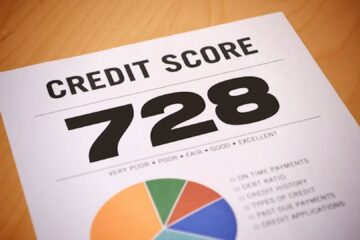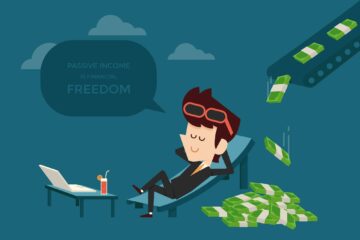Indebtedness: Discovering Ways to Escape Financial Strain and Find Relief
Advertising
Indebtedness refers to the state of owing money, significantly impacting mental health and financial stability. Overcoming it involves creating a budget, prioritizing debts, seeking help, and changing spending habits to regain control and achieve financial relief.
Are you feeling trapped by your **indebtedness**? You’re not alone. Millions of people face bouts of **indebtedness** that seem overwhelming. This blog post will explore effective strategies to regain control and **overcome your financial challenges**. Let’s dive into understanding **indebtedness** and discover actionable steps that can lead you towards financial freedom.
Understanding the Concept of Indebtedness
Indebtedness refers to the state of owing money to others. It can happen for various reasons, such as student loans, credit card debt, or medical expenses. Understanding the concept of indebtedness is essential to managing it effectively. Indebtedness can be broken down into different types, including secured debt, like a mortgage, and unsecured debt, like credit card bills.
The Different Types of Indebtedness
Secured debts are tied to an asset. For instance, if you take out a loan to buy a car, that car serves as collateral. If you don’t pay, the lender can take it back. Unsecured debts, on the other hand, do not have collateral. This type of debt is often harder to manage and can lead to serious consequences if not addressed.
The Causes of Indebtedness
Many factors can lead to becoming indebted. Some common reasons include job loss, unexpected emergencies, and poor spending habits. People may also fall into debt due to a lack of financial education. Understanding these causes can help you create better financial habits and avoid falling into the debt trap.
How Indebtedness Affects Your Life
Being in a state of indebtedness can take a toll on your mental and emotional health. It creates stress and anxiety and can affect relationships with family and friends. The burden of debt may limit your life choices, leading to a feeling of hopelessness.
By comprehending the full scope of indebtedness, you can begin to take the necessary steps towards managing your financial situation. Learn about budgeting, saving strategies, and where to seek help for a clearer path to becoming debt-free.
The Psychology Behind Indebtedness and Its Effects
The psychology behind indebtedness can be complex and deeply rooted in our habits and beliefs. When individuals face financial struggles, feelings of shame and anxiety often emerge. These emotions can lead to a cycle of stress, making it harder to address the root causes of indebtedness.
Emotional Impact of Indebtedness
People in debt frequently experience negative emotions that can affect their daily lives. They may feel overwhelmed, frustrated, and embarrassed. These feelings can prevent them from seeking help or making changes. Understanding these emotional connections is essential as it helps in finding effective ways to cope and move forward.
Cognitive Dissonance and Financial Choices
Cognitive dissonance plays a significant role in how individuals manage debt. This occurs when there is a conflict between beliefs and behaviors. For example, a person may believe they should save money but continue to spend excessively on non-essentials. The resulting discomfort can lead to denial about the severity of their situation, which can worsen their level of indebtedness.
The Role of Financial Education
Understanding basic financial principles can significantly mitigate the psychological burden of indebtedness. Financial education empowers individuals to make informed choices, thus reducing anxiety related to debt. Learning about budgeting, managing expenses, and the importance of saving can help shift perspectives on money and debt, making the path to recovery clearer.
Exploring the psychology behind indebtedness helps individuals recognize their feelings and thought patterns, paving the way for healthier financial habits. By addressing both the emotional and cognitive aspects, one can begin to break free from the cycle of debt.
Strategies for Overcoming Indebtedness in Your Life
Overcoming indebtedness is achievable with the right strategies. Here are some effective methods to help you regain control of your finances.
1. Create a Realistic Budget
Start by making a budget. List your income and all expenses, including bills and daily spending. This helps you see where your money goes. A budget shows you what you can cut back on to pay off debt faster.
2. Prioritize Your Debts
Not all debts are the same. Focus on paying off high-interest debts first. These can be very costly. Consider the debt snowball method as well, where you pay off the smallest debt first. This can provide a sense of accomplishment.
3. Seek Help and Support
Do not hesitate to ask for help. Consult with a financial advisor or a credit counseling service. They can offer valuable advice and resources tailored to your situation.
4. Explore Debt Relief Options
Look into options like debt consolidation or negotiation with creditors. These can help reduce the total amount you owe or lower your monthly payments, making it easier to manage your finances.
5. Change Your Spending Habits
Identify areas where you can cut back. Try to avoid impulse purchases and find more affordable alternatives for your needs. Developing healthy spending habits is crucial in preventing further indebtedness.
6. Increase Your Income
Consider taking on a part-time job or freelance work to increase your income. Any extra money can go directly toward paying off debts.
By implementing these strategies, you can take significant steps toward overcoming indebtedness and improving your financial health.
Finding Relief from Indebtedness
Overcoming indebtedness is a journey that requires understanding, emotional resilience, and practical strategies. By grasping the concepts of debt, recognizing its psychological impacts, and applying effective strategies to manage and reduce it, individuals can regain control of their financial lives.
The road to financial freedom involves creating a realistic budget, prioritizing debts, seeking help, changing spending habits, and sometimes even increasing income. Each step taken brings you closer to achieving relief from financial strain.
Remember, managing indebtedness is a process, and with continued effort, support, and education, you can pave the way toward a more secure and prosperous future.
FAQ – Frequently Asked Questions about Indebtedness
What is indebtedness?
Indebtedness refers to the state of owing money to creditors. It can be caused by various factors, including loans, credit card debt, and unexpected expenses.
What are some common strategies to overcome indebtedness?
Effective strategies include creating a realistic budget, prioritizing debts, seeking financial advice, and changing spending habits.
How does indebtedness affect mental health?
Indebtedness can lead to feelings of stress, anxiety, and shame, which can negatively impact overall mental and emotional well-being.
What role does financial education play in managing debt?
Financial education empowers individuals to make informed decisions about budgeting, spending, and saving, which can help prevent and manage debt.
Is it okay to ask for help with managing my debts?
Yes, seeking help from financial advisors or credit counseling services can provide valuable support and resources tailored to your specific situation.
What tools can I use to track my expenses?
You can use budgeting apps, spreadsheets, or pen and paper to track your expenses and develop a clear overview of your financial situation.




